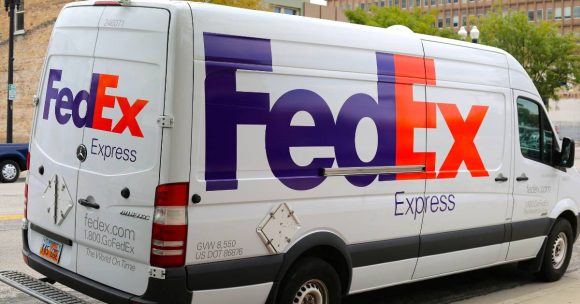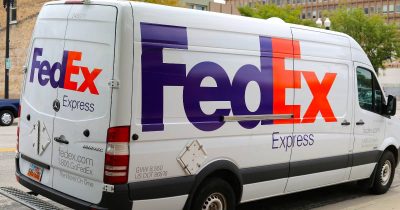FedEx Express has recently made history with electric vehicle delivery. The company completed its first cross-border delivery using an electric vehicle (EV), transporting a package from Malaysia to Singapore. The Malaysia Book of Records acknowledged this pioneering effort as the “First Zero Emission Cross-Border Delivery.”
This milestone is a significant step towards FedEx’s commitment to achieving carbon-neutral operations by 2040.
The company is on a mission with its zero-emission deliveries. Last month, FedEx Express Europe started trialing a hydrogen-powered van for its pick-up and delivery operations in the Netherlands. This is the first time FedEx Express has tested this technology in Europe.
Eco-friendlier electric vehicle delivery
Tien Long Woon, managing director of FedEx Express Malaysia says: “This signifies a major step forward in sustainable logistics. The Malaysia Book of Records acknowledgment symbolizes our ambition to become a pioneer in environmental stewardship and our commitment to spearhead the development of eco-friendlier logistics solutions for our customers to help meet their sustainability goals.”
Woon adds that the increase in online shopping among consumers, coupled with their growing concern for sustainability, necessitates the integration of EVs into their operations. This move is aimed at adapting to the evolving preferences of their customers.
Siti Nurhanim Mohd Noh, MBR Official of the Malaysia Book of Records, says: “We offer our congratulations to FedEx for setting a new benchmark in the logistics industry. This achievement is a testament to the company’s potential to drive industry-wide transformation, embracing more sustainable and environmentally friendly practices.”
Reducing delivery times
Here’s a scenario: Consider a typical client Sam, who is well-informed about his company’s carbon footprint. He selects FedEx for his courier needs, valuing their commitment to reducing environmental impact. The use of electric bikes by FedEx Express not only addresses Sam’s concern for sustainable practices but also offers efficient urban mobility, avoiding traffic delays and reducing delivery times.
FedEx recently introduced “FedEx® Sustainability Insights,” a new cloud-based tool that provides customers with historical data on shipment emissions. This information aids in strategizing future shipping for reduced environmental impact.
Fortune Business Insights reports the global EV market is expected to grow at an annual compounded growth rate of 17.8% in the next six years.
Industry players and sustainability
FedEx is not the only company adapting to a sustainable way of doing business. In September, logistics giant DHL received the first Australian-bound FL Electric with the upgraded 66kWh battery packs.
On the announcement, Steve Thompsett, the CEO of DHL Supply Chain said: “Updating our fleet to zero emissions vehicles is a priority in Australia, and it combines well with the measures we’re taking to reduce our carbon footprint across our operations.
DHL has a strong understanding of the climate crisis and a head-start in reducing the environmental impact of its operations. Our company has already trialed and rolled out Volvo’s electric truck offerings in Europe, meaning that we could forgo an Australian trial and go straight to investing in these climate-benefitting vehicles.”
Now Read: The electric freight shift: How trucks are going green
About the author
Sharl is a qualified journalist. He has over 10 years’ experience in the media industry, including positions as an editor of a magazine and Business Editor of a daily newspaper. Sharl also has experience in logistics specifically operations, where he worked with global food aid organisations distributing food into Africa. Sharl enjoys writing business stories and human interest pieces.











